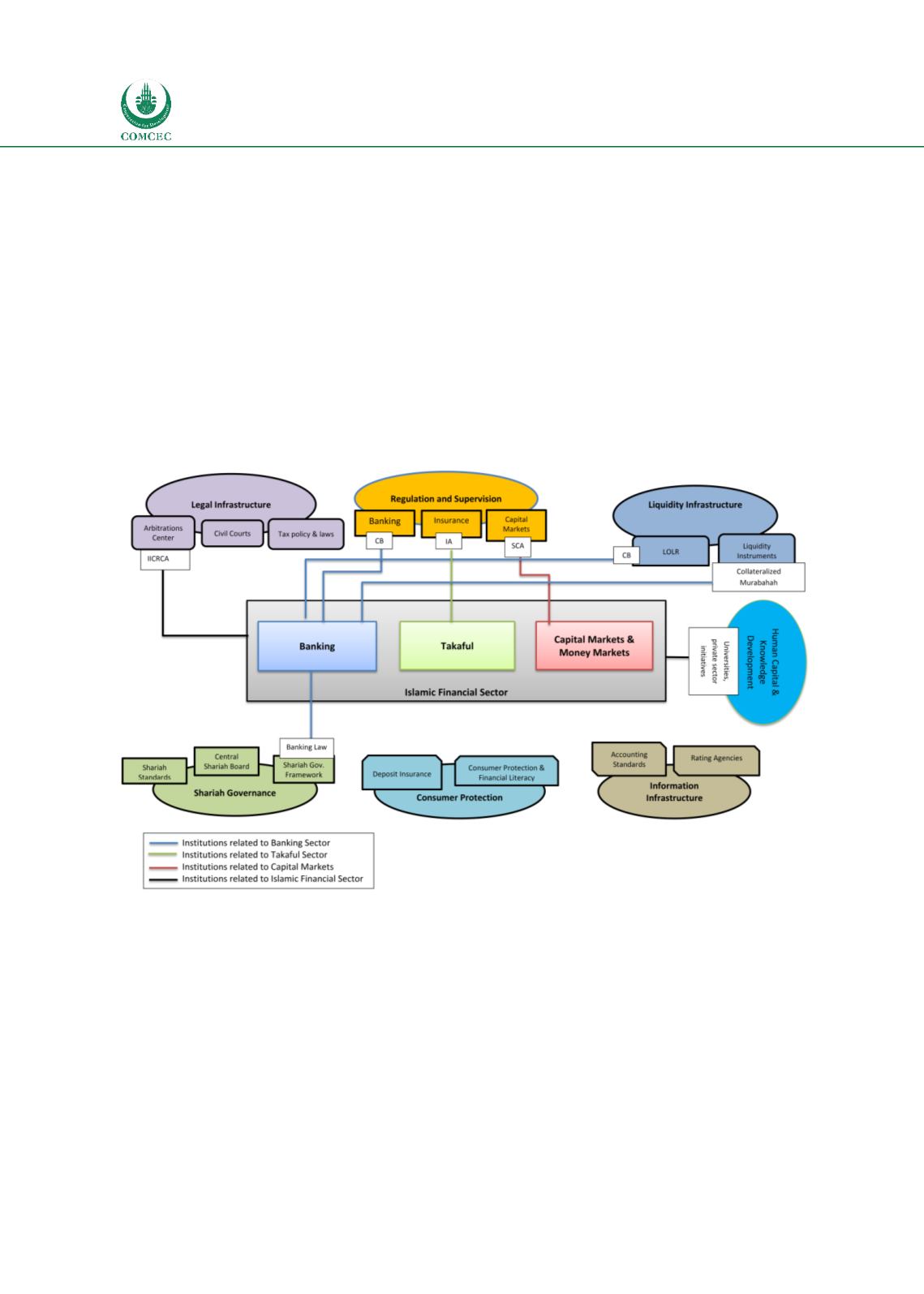

National and Global Islamic Financial Architecture:
Problems and Possible Solutions for the OIC Member Countries
164
4.12.8 Summary and Conclusions
Even though the UAE has one of the biggest Islamic financial industries, the infrastructure
supporting the industry is relatively underdeveloped. While the financial laws recognize
Islamic finance as a legitimate business, the regulators have come up with regulatory
guidelines for different Islamic financial sectors. The banking law stipulates that Islamic banks
should have Shariah boards but details of their governance are lacking. Though the banking
law mentions a central Shariah board, by default
it does not exist. There is one liquidity
instrument that the central bank uses to manage the liquidity of Islamic banks and the central
bank uses this instrument to provide funds to Islamic banks. There is no specific information
infrastructure or consumer protection framework for Islamic finance. Some universities and
the private sector have taken initiatives to provide education and training in Islamic finance in
the country.
Chart
4.12: Islamic Financial Architecture Institutions—UAE
















